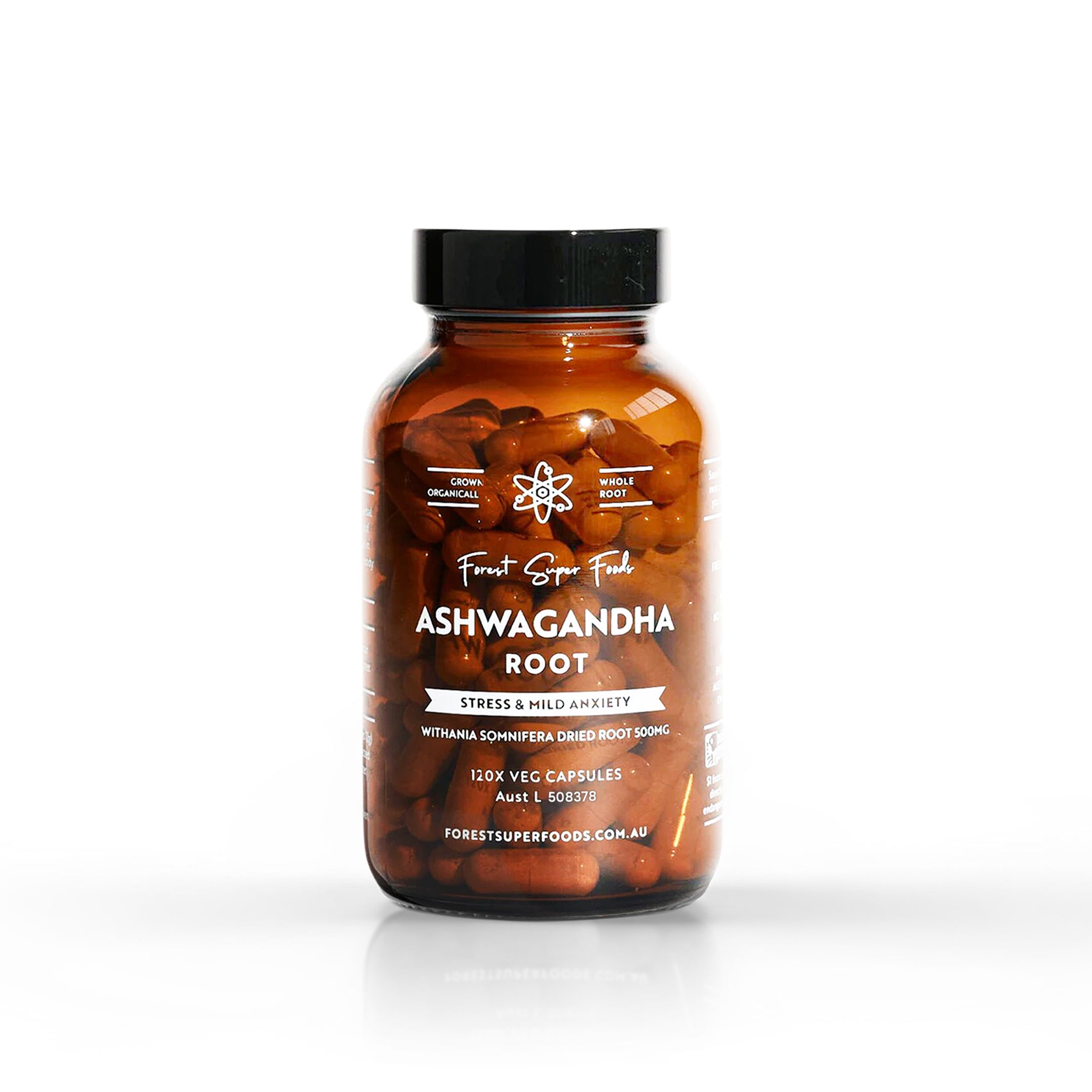What to know before adding this traditional herb to your routine
Ashwagandha (Withania somnifera) is a root traditionally used in Ayurvedic medicine to support the body’s ability to adapt to stress, maintain vitality, and promote general wellbeing. While it is well-tolerated for most people when used at recommended doses, it’s important to be aware of possible side effects and considerations before starting.
Who Can Usually Take Ashwagandha Safely
Most healthy adults can take ashwagandha without experiencing negative effects, particularly when using the whole root powder in moderate amounts. It has been consumed for centuries as part of food and herbal wellness traditions.
Possible Mild Side Effects
A small number of people may experience:
-
Digestive discomfort – such as loose stools, mild nausea, or stomach upset.
-
Drowsiness or calming effect – particularly if taken in higher amounts or with other calming herbs/supplements.
-
Changes in appetite – some people notice a small increase or decrease in appetite.
|
"
"It takes the edge off. Much more relaxed using it and improved rest. Keep up the good work Forest Super Foods." - Darren P. (Verified Customer)
|
 |
These effects are generally mild and resolve when the dose is reduced or if the supplement is taken with food.
When to Seek Professional Advice
You should speak with a healthcare practitioner before taking Ashwagandha if you:
-
Are pregnant or breastfeeding
-
Have a thyroid disorder
-
Have an autoimmune condition or are on immune-modulating medications
-
Are preparing for surgery or recovering from a major medical procedure
| "I have been on ashwaganda for a short time and already have had amazing results and sincerely hope people look into this amazing product as there is no need to suffer and thanks forest super foods ❤️" - Michelle (Verified Customer) |
 |
While ashwagandha is traditionally used to support wellbeing, in certain circumstances it may not be appropriate without professional guidance.
Interactions to Consider
Ashwagandha may have additive calming effects if taken alongside other supplements or medications with sedative properties. If you are taking any prescription medication, it’s best to confirm safety with your healthcare provider.
Tips for Reducing Risk of Side Effects
-
Start low – Begin with the lower end of the recommended dose and increase gradually.
-
Take with food – This can help reduce any potential stomach discomfort.
-
Split doses – If you take a larger daily amount, divide it between morning and evening for more consistent support.
The Bottom Line
Ashwagandha is a widely used herb with a long tradition of safe use for stress support and general wellbeing. Most people tolerate it very well, but like any supplement, it’s best to start gradually and pay attention to how your body responds. If you have any health conditions or take medication, check with a healthcare professional first.
Organic Ashwagandha CapsulesA powerful supplement for your health and wellness. Order Now |

|
Frequently Asked Questions
What does Ashwagandha do for the body?
Ashwagandha is a traditional adaptogen known for helping the body manage stress. It may support hormone balance, improve energy levels, reduce anxiety, and enhance sleep quality. Some studies also suggest benefits for brain function, endurance, and immunity.
Is Ashwagandha allowed in Australia?
Yes, Ashwagandha is approved for use and sale in Australia as a listed ingredient in supplements. At Forest Super Foods, we ensure our Ashwagandha is 100% organic and compliant with Australian standards and regulations.
What happens if I take Ashwagandha daily?
Many people take Ashwagandha daily for long-term stress support, improved mood, and better sleep. Most benefits are noticed gradually over weeks. Always follow the recommended dose and consult a healthcare professional if you're on medication or managing a health condition.
Does Ashwagandha have side effects?
Ashwagandha is generally well tolerated, but in some cases, it may cause digestive upset, drowsiness, or hormonal effects. It's not recommended during pregnancy, and people with thyroid conditions or autoimmune disorders should consult their doctor first.
Does Ashwagandha make you sleepy?
Ashwagandha doesn't act like a sedative, but it may promote relaxation and help reduce overactive stress responses. This calming effect may support deeper sleep at night without causing grogginess during the day.
How long does it take for Ashwagandha to kick in?
Most people start noticing effects within 2 to 4 weeks of consistent use. However, it can vary depending on your health, dosage, and what you're using it for (e.g., stress, sleep, energy, or hormones).










Leave a comment
All comments are moderated before being published.
This site is protected by hCaptcha and the hCaptcha Privacy Policy and Terms of Service apply.